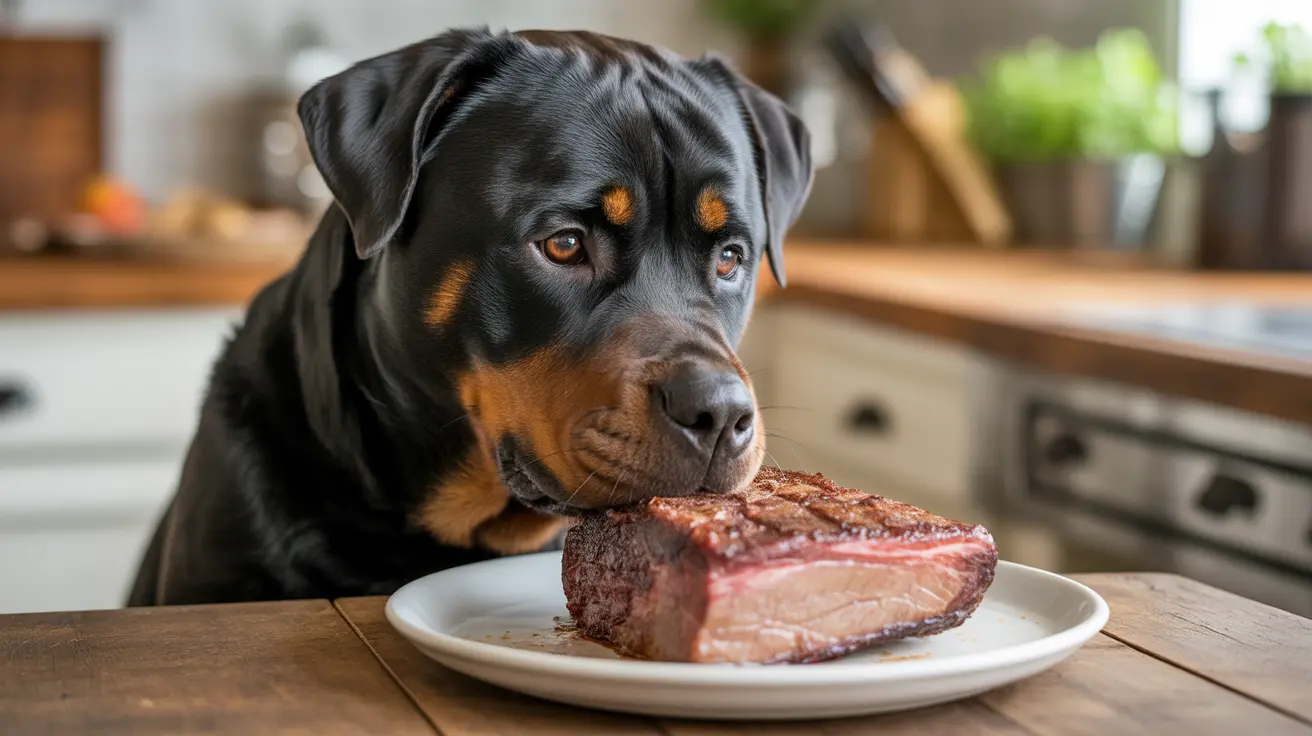As pet owners increasingly share their meals with their furry friends, many wonder about the safety of feeding dogs brisket. While dogs can technically eat plain, unseasoned brisket in small amounts, there are important considerations and potential risks to understand before sharing this popular cut of beef with your canine companion.
This comprehensive guide will explore the safety, benefits, and risks of feeding brisket to dogs, helping you make informed decisions about including this meat in your pet's diet.
Understanding Brisket and Its Basic Components
Brisket is a cut of beef from the lower chest of cattle, known for its rich flavor and tender texture when properly cooked. While beef itself is a common ingredient in commercial dog foods, the way brisket is typically prepared for human consumption can make it problematic for dogs.
The meat contains valuable nutrients including protein, iron, zinc, and B vitamins. However, brisket also tends to be fatty and is usually prepared with seasonings that can be harmful to dogs.
Safe Ways to Feed Brisket to Dogs
If you decide to share brisket with your dog, follow these essential guidelines:
- Serve only plain, unseasoned brisket
- Remove all visible fat
- Cut into small, manageable pieces
- Offer as an occasional treat only
- Limit portion size based on your dog's weight
Remember that even plain brisket should make up no more than 10% of your dog's daily caloric intake.
Potential Risks and Dangers
Common Preparation Hazards
Traditional brisket preparations often include ingredients toxic to dogs:
- Garlic and onions (cause damage to red blood cells)
- Salt and seasonings (can lead to sodium poisoning)
- BBQ sauces (often contain harmful ingredients)
- Smoke flavoring (may cause digestive upset)
Health Concerns
Even plain brisket can pose certain risks:
- High fat content may trigger pancreatitis
- Excessive protein can strain kidneys in sensitive dogs
- Calories can contribute to obesity
- Seasoned variations can cause severe gastrointestinal distress
What to Do If Your Dog Eats Seasoned Brisket
If your dog consumes seasoned brisket, take these steps:
- Remove access to any remaining brisket
- Monitor for signs of distress
- Provide fresh water
- Contact your veterinarian if symptoms develop
Watch for symptoms like vomiting, diarrhea, lethargy, or unusual behavior.
Healthier Alternatives to Brisket
Instead of brisket, consider these safer protein options for your dog:
- Lean, plain chicken breast
- Plain, cooked turkey
- Lean ground beef (93% lean or higher)
- Commercial dog foods with appropriate protein levels
Frequently Asked Questions
Can dogs safely eat plain, unseasoned brisket and how much is okay?
Yes, dogs can eat plain, unseasoned brisket in small amounts. A good rule of thumb is to limit portions to no more than 1-2 small pieces (about the size of a treat) for medium-sized dogs, adjusting portions based on your dog's size.
Why is seasoned or sauced brisket dangerous for dogs?
Seasoned brisket often contains ingredients toxic to dogs, such as garlic, onions, and high levels of salt. These ingredients can cause serious health issues ranging from anemia to sodium poisoning.
What symptoms should I watch for if my dog eats fatty or seasoned brisket?
Monitor for vomiting, diarrhea, lethargy, excessive thirst, abdominal pain, and unusual behavior. These could indicate pancreatitis or toxicity from seasonings.
Are raw brisket bones safe for dogs, and how do they benefit dental health?
Raw brisket bones can be safe and beneficial for dental health when properly sourced and supervised. However, never give cooked bones as they can splinter and cause internal injuries.
What are healthier protein alternatives to brisket for dogs with sensitive stomachs?
Dogs with sensitive stomachs do better with lean proteins like plain boiled chicken, turkey, or specialized sensitive-stomach dog foods. These options are easier to digest and less likely to cause gastrointestinal issues.
Conclusion
While dogs can eat plain, unseasoned brisket in moderation, it's crucial to exercise caution and follow safe feeding guidelines. The risks associated with seasonings, fat content, and preparation methods make it important to carefully consider whether sharing brisket with your dog is worth the potential health risks.
When in doubt, stick to dog-specific treats and foods formulated for your pet's nutritional needs. Always consult with your veterinarian before introducing new foods to your dog's diet, especially if your pet has existing health conditions or dietary restrictions.






